United Kingdom
Britain's Parliament has finally passed a law to send some migrants to Rwanda, paving the way for flights this summer under Prime Minister Rishi Sunak's controversial plan to discourage risky Channel crossings by people desperate to reach the United Kingdom.
A bill to unblock a plan beset by legal challenges and legislative battles was approved on Tuesday, delivering what Rishi Sunak hopes will be a much-needed political victory and fulfill his promise to "stop the boats".
Human rights defenders and migrant associations have promised to continue the fight against this policy, which they consider unethical and inhumane. Here's a look at the plan and what it took to get to this point:
The Rwanda Plan is the British government's response to the growing number of migrants from around the world - expected to reach 46,000 in 2022 - crossing the English Channel from France to Britain in small boats.
Refugees
Most people who arrive via this route seek asylum and, in the past, many have been granted it. The conservative government believes that these migrants should not be treated as real refugees because they did not seek asylum in another safe country, such as France, which they reached first.
To try to deter people from making these risky journeys, the UK struck a deal with Rwanda in April 2022 to send migrants who arrive in the UK as stowaways or in boats to the country. East Africa, where their asylum applications would be processed and, if accepted, they could stay there.
Human rights groups and other critics of the plan say it is impossible and unethical to send migrants to a country 6,400 miles away where they don't want to. live. No one has been sent to Rwanda yet, but Rishi Sunak said the first flights would leave in July.
Legal remedies
The plan for Rwanda was immediately the subject of legal challenges. The first return flight was canceled at the last moment, in June 2022, following a ruling by the European Court of Human Rights.
The case eventually went to Britain's Supreme Court , which defeated the government in November, ruling that the policy was illegal because Rwanda was not a safe third country to which migrants could be sent. . Five judges unanimously declared that "returning the applicants to Rwanda would expose them to a real risk of ill-treatment" because they could be returned to the countries of origin they fled.
The judges said there was evidence that Rwanda had a culture that did not understand its obligations under the Refugee Convention, that it was dismissive of asylum seekers from the Middle East and Afghanistan, and had little experience with the asylum procedures needed to deal with cases of migrants from around the world.
Treaty
In December, Britain and Rwanda signed a treaty pledging to strengthen migrant protections, including banning Rwanda from returning any migrants deported from the UK to their countries of origin. Mr Sunak's government argued that the treaty allowed it to pass a law declaring Rwanda a safe destination.
Rwanda's security bill, which was passed on Tuesday, declares the country safe, making it harder for migrants to challenge their deportation and allowing the British government to ignore injunctions from the European Court of Justice. rights seeking to block removals.
If that is not enough to stop legal challenges, Mr Sunak said he would consider ignoring or leaving international human rights treaties, including the European Convention on Human Rights . The move is supported by some members of the ruling Conservative Party, but it would spark strong domestic opposition and international criticism. The only European countries that are not parties to the human rights convention are Belarus and Russia .
The Rwandan government insists it is "committed to its international obligations" and has been recognized by the UN and other international institutions "for its exemplary treatment of refugees" . The Rwandan government says the country is ready to welcome British migrants and plans to build more than 1,000 houses, including leisure facilities, for those deported.
Similar policies
Britain is not alone in trying to control illegal immigration . Much of Europe and the United States are grappling with how best to deal with migrants seeking to flee war , violence, oppression and global warming, which has led to droughts and devastating floods.
A few countries have tried offshore processing of asylum seekers , including Australia , which first sent migrants to the Pacific island of Nauru in 2001 and operates a processing center there. asylum since 2012.
From 2013 to 2018, Israel entered into an agreement with Rwanda to deport African migrants , until the Israeli Supreme Court declared it illegal. Denmark has abandoned an agreement with Rwanda and wants to find a solution with the other countries of the European Union.
“A British or Danish solution will solve a problem for each country ,” Kaare Dybvad Bek, Danish Immigration Minister, told Danish broadcaster DR on Tuesday. “But we believe that a unified European solution will solve more problems, because it will also put an end to the activities of smugglers who today make billions transporting people across the Mediterranean.”
Last year, Italy reached a deal with Albania for the Balkan country to temporarily house and process some of the thousands of migrants reaching Italian shores. There is one key difference from the British plan: it is not a one-way ticket. Asylum seekers whose applications were accepted would start a new life in Italy, not Albania.



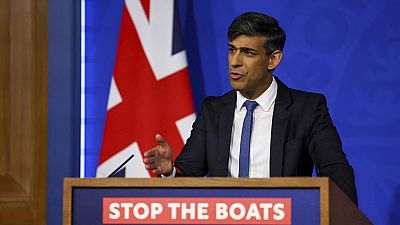

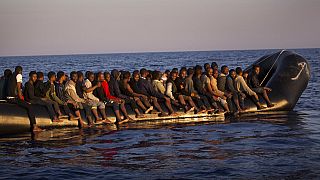



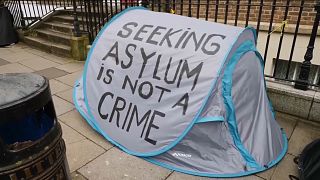

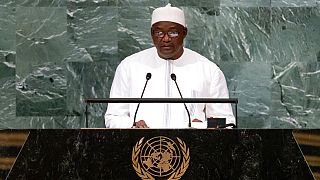
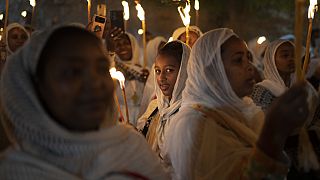
01:45
Niger: Agadez re-emerges as migration hub to europe
01:05
Man denied asylum in the UK relocates to Rwanda voluntarily
01:10
Rwanda says it is ready for migrants deported from UK
01:09
At least 16 dead in latest migrant boat tragedy off the coast of Djibouti
01:09
Asylum seekers fearful after Britain approves Rwanda deportation bill
01:30
UK parliament passes controversial bill to send asylum seekers to Rwanda